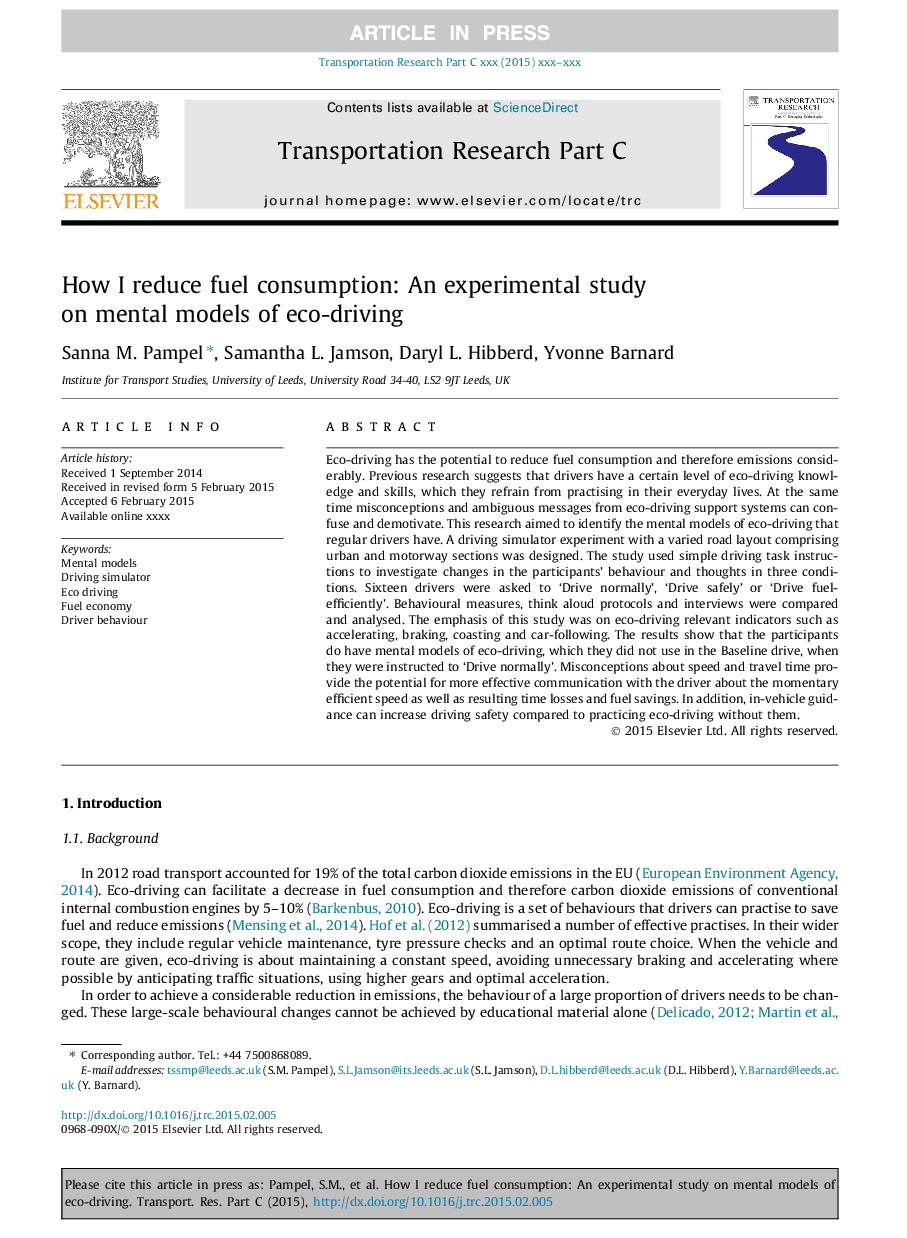| Article ID | Journal | Published Year | Pages | File Type |
|---|---|---|---|---|
| 10359029 | Transportation Research Part C: Emerging Technologies | 2015 | 12 Pages |
Abstract
Eco-driving has the potential to reduce fuel consumption and therefore emissions considerably. Previous research suggests that drivers have a certain level of eco-driving knowledge and skills, which they refrain from practising in their everyday lives. At the same time misconceptions and ambiguous messages from eco-driving support systems can confuse and demotivate. This research aimed to identify the mental models of eco-driving that regular drivers have. A driving simulator experiment with a varied road layout comprising urban and motorway sections was designed. The study used simple driving task instructions to investigate changes in the participants' behaviour and thoughts in three conditions. Sixteen drivers were asked to 'Drive normally', 'Drive safely' or 'Drive fuel-efficiently'. Behavioural measures, think aloud protocols and interviews were compared and analysed. The emphasis of this study was on eco-driving relevant indicators such as accelerating, braking, coasting and car-following. The results show that the participants do have mental models of eco-driving, which they did not use in the Baseline drive, when they were instructed to 'Drive normally'. Misconceptions about speed and travel time provide the potential for more effective communication with the driver about the momentary efficient speed as well as resulting time losses and fuel savings. In addition, in-vehicle guidance can increase driving safety compared to practicing eco-driving without them.
Related Topics
Physical Sciences and Engineering
Computer Science
Computer Science Applications
Authors
Sanna M. Pampel, Samantha L. Jamson, Daryl L. Hibberd, Yvonne Barnard,
